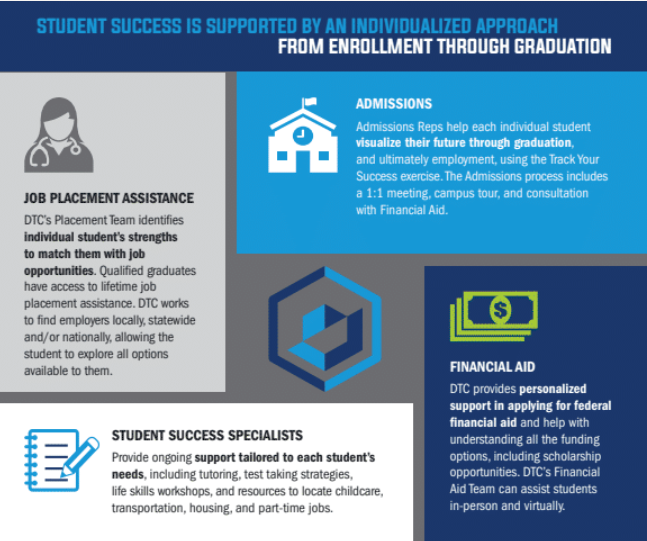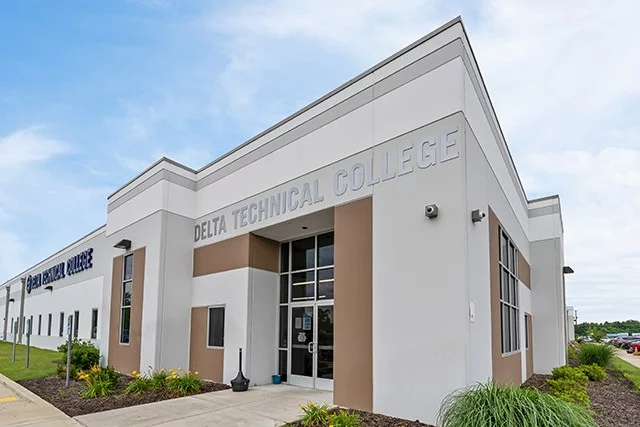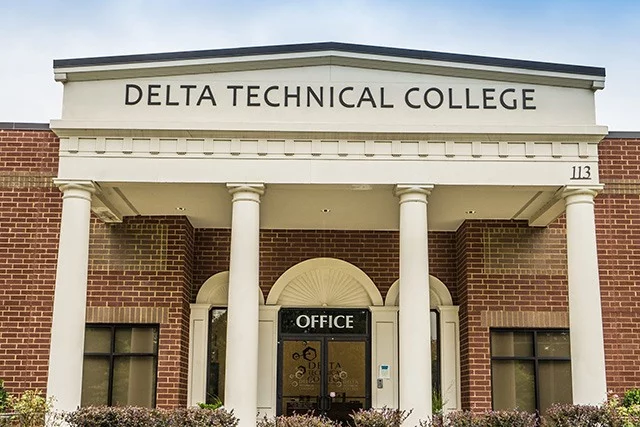Job versus Career: Finding a Career After High School
You will spend nearly 100,000 hours at work over the course of your lifetime. Choosing how to spend that time often starts with understanding the difference between a job versus career.
A job is usually someplace you work short term, because there are limited opportunities to advance. Most ‘jobs’ are an opportunity to learn basic professional skills and gain the experience you need to pursue more advanced opportunities in the future.
A career is a path you can follow long-term that provides opportunities to advance professionally. Finding a career path you’re passionate about can offer a greater sense of fulfillment in your professional and personal life. Everyone deserves the opportunity to spend their 100,000 working hours doing something they enjoy!
Whereas most jobs only require a limited set of skills and limited opportunities to advance, a career path challenges you to grow and often rewards you with greater financial stability. Careers require professional training before entering the workforce into an entry-level position. However, you do have options beyond a traditional 2-year or 4-year college.
Careers After High School: Exploring Your Options
Employers do not necessarily prioritize your GPA or your participation in extracurricular activities throughout high school. Instead, many employers around the country are looking for individuals who possess critical skills to fill essential positions, including HVAC/R, welding, medical assisting, dental assisting, phlebotomy, medical coding, and professional truck driving. There are some jobs after high school that do not require previous experience and allow you to train on-the-job. However, generally even entry-level positions within career paths require a certain level of education, such as completing a training program through an accredited trade school.
Is Trade School Worth It? Choosing Your Path After High School
Are you interested in a career path in the skilled trades industry? There are trade schools near you, like Delta Technical College (DTC), that can help fast track your path to the many rewarding careers after high school in essential roles that require professional training.
Delta Technical College (DTC) offers high school graduates an alternative to the traditional 2-year and 4-year college education. The majority of DTC’s programs can be finished in less than a year*, allowing you to enter the workforce in less time. Students who attend a traditional 4-year college may not have insight on what the job market will look like for their chosen field by the end of their program, but students attending shorter trade school programs may have a better sense of the current demand and how to take advantage immediately following graduation. The hands-on training provided by DTC instructors empowers students with hands-on, real-world experience and helps them build the essential skills needed to start their career.
Read More: “Trade School vs. College: Cost, Time, and Training Differences”
*Note, not all of DTC’s programs and courses can be completed in less than a year.
The Benefits of Going to Trade School
For many students each year, trade schools offer a more affordable and faster educational route to careers after high school. Skilled workers like medical assistants and HVAC/R technicians play an important role in the American workforce. For example, HVAC/R technicians spend their working hours ensuring homes stay cool during the summer and warm during the winter. Medical assistants play an important role in the healthcare industry, helping to support the team within a healthcare environment, these allied health career professionals have historically been in demand.
In addition to a hands-on education, the additional benefits of going to trade school include:
- Students may complete their education with less student loan debt.
- Students can typically enter the workforce earlier and begin their entry-level career faster than a traditional 2-year or 4-year college path.
- Many skilled trades are in high demand; the U.S. Bureau of Labor Statistics reports that sectors such as allied health, heavy and tractor-trailer truck driving, maintenance and repair, and mechanical trades are expected to grow.
- Smaller class sizes compared to traditional universities, meaning you receive more one-on-one interaction with your instructor.
Read More: “How to Get Hands-On Training at Delta Technical College”
*Note, not all of DTC’s programs and courses can be completed in less than a year.
READY TO LEARN MORE ABOUT DTC’S HANDS-ON TRAINING PROGRAMS?
How Do I Know What I Should Do After High School? Know your learning style
Your learning style can tell you a lot about how you best receive information, and can help you determine the best type of educational path for you. Take the DTC Learning Style Quiz to find out your learning style.
DTC Programs and Courses
Delta Technical College (DTC) is a year-round trade school providing hands-on training in mechanical trades, allied health, cosmetology, and truck driving career fields where job growth is expected.
Midwest Technical Institute (MTI), is DTC’s sister school, and was founded in 1995 in Lincoln, Illinois. Since opening its doors to the first DTC campus in 2004, DTC has achieved many milestones, including receiving national accreditation for its course offerings, and expanding our programs and courses beyond the original welding program.
DTC has always taken great pride in changing the lives of our students by providing the hands-on workforce training they need to be successful. After 25 years and 25,000 graduates, that goal has remained the same.
Mechanical Trades
Allied Health
Truck Driving
Cosmetology
How to Complete DTC’s Admissions Process
DTC’s dedicated Admissions Team provides students and their parents with the tools they need to make informed decisions about next steps after high school. DTC provides students one-to-one support from enrollment through graduation – including Financial Aid, Student Success Specialists, and Career Placement.*
*Financial aid and career placement assistance available to those who qualify.

DTC Scholarship Opportunities
Delta Technical College (DTC) offers several annual scholarship opportunities to graduating high school seniors. DTC has awarded over $5 million in scholarship funds since 2014!
These DTC scholarship programs are available specifically to high school students:
Midwest Technical Institute and Delta Technical College High School Scholarship Program
Midwest Technical Institute and Delta Technical College Regional High School Welding Competition
Midwest Technical Institute and Delta Technical College Live, Breathe, Smile Competition
Where are DTC's Campuses Located?
Meet DTC Graduates
Additional Resources for High School Students and Parents
*Career placement assistance, financial aid, and scholarship opportunities are available to those who qualify.






